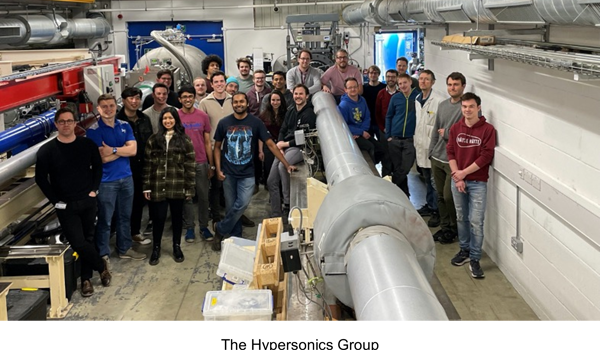01 Dec 2023
Dr Muting Hao, Oxford Thermofluids Institute wins CIUK 2023 Jacky Pallas Memorial Award

Congratulations to Dr. Muting HAO, University of Oxford, for her work on "Advancing Aviation Efficiency and Sustainability Through CFD", has been selected as the winner of the CIUK 2023 Jacky Pallas Memorial Award this year. This annual award sponsored by the UKRI Computing Insight UK conference and is to highlight the work of an early career researcher on computing and will allow the award winner a slot in the main programme at CIUK.
Muting is an early career postdoc since achieving her DPhil in 2022, under the supervision of Professor Luca di Mare. Muting's work has developed new tools for Advancing Aviation Efficiency and sustainability through turbomachinery Computational fluid dynamics (CFD).
Muting's research aims to enhance the sustainability of commercial aviation through turbomachinery Computational fluid dynamics (CFD). The global emissions of commercial aviation have projected growth demand action to make the sector sustainable in the long run. Immediate gains in sustainability can be achieved through reductions in fuel use. Muting's research helps reducing fuel use by improving the performance of aircraft engines. In broad terms, the performance of an aircraft jet engine can be improved in two ways: 1) improving the efficiency by which the energy of the fuel is transformed into the kinetic energy of the propulsive jet; 2) improving the efficiency by which the propulsive jet is used to propel the aircraft. The former can be attained by increasing the temperature at turbine inlet; the latter can be attained by producing most of the engine thrust using a large diameter fan. Both types of improvements pose new challenges to designers.
Muting's work on turbine cooling addresses the complexity of film cooling flows which bring challenges to accurate numerical simulations and Traditional Reynolds-averaged Navier–Stokes models struggle with accuracy. Large Eddy Simulation (LES) has been employed for accurate predictions of thermal performance and turbulence characteristics, enabling a parametric study, yielding insights into mixing regimes that are crucial for design considerations. Validated predictions contribute to a scaling law for the three-dimensional wall jets, guiding computational models modifications for improved accuracy, potentially refining film cooling design methodologies.
Muting's work on bypass design, focuses on the interactions between the fan and its exhaust duct. Proposing a flow model accommodating circumferential distortions and considering component interactions, the study emphasizes an efficient computational approach for optimal configurations, crucial for maintaining performance and integrity amid geometric variations.
She says, “Through the development of advanced Computational Fluid Dynamics (CFD) tools, detailed turbulence statistics within complex flows in gas turbines, including cooling films, can be discerned, which helps clearly identify and explain deficiencies in existing modelling methods. This endeavour will finally contribute to achieving accuracy and efficiency for computing and design. Thanks to the support from Professor Luca di Mare, the Oxford Thermofluids Institute and Rolls-Royce plc, and the funding provided by UKRI in propelling this research forward.”




